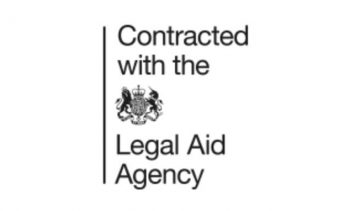In today’s fluctuating economic landscape, with interest rates and cost-of-living surges frequently in the news, mortgage manageability is top-of-mind for many. For couples navigating a separation, understanding how a divorce impacts their mortgage is vital. The family home, often the most valuable asset, must be addressed in the financial settlement, irrespective of whose name the mortgage is under.
While most couples aim for a complete financial separation post-divorce, those with a joint mortgage remain tied due to their joint and several liability towards the mortgage. This lasts until the mortgage is either fully paid or transferred to a single name.”
The family home’s fate usually takes one of three paths post-divorce:
- Selling the Home: Opting to sell means both parties usually collaborate to select an estate agent to ensure the best sale price. Post agreement on the sale, a solicitor determines the outstanding mortgage amount. After the sale finalises, the mortgage is paid off, absolving both parties of future responsibilities.
- One Party Retains the Home:
- If you alone own the house and the mortgage is in your name, there’s no immediate mortgage-related action needed. Your legal representative will frame a settlement ensuring your ex-partner relinquishes any claim to the house.
- If your ex-partner is the sole owner, the property will need to be transferred to your name. Depending on the settlement details, you might require a sole mortgage. Consultation with a financial advisor is essential.
- For joint mortgages, you’ll need to repay the existing mortgage and establish a new one solely in your name. Alternatively, the current mortgage provider may allow a transfer to one name, releasing the other party from obligations.
- The Other Party Retains the Home: The starting point remains a property valuation. If your name isn’t on the ownership documents, a settlement will confirm your relinquishment of claims. For homes solely in your name, the mortgage needs to be settled when transferring ownership. If it’s a joint mortgage, steps must be taken to ensure your release from all future liabilities, either by consent from the mortgage provider or by ensuring mortgage repayment.
Addressing Negative Equity: When the owed amount exceeds the property’s value, it’s termed negative equity. In such cases:
- Selling the house necessitates either party to furnish a lump sum to cover the mortgage shortfall.
- Retaining the house may involve raising a lump sum to decrease the mortgage, potentially enabling a remortgage under a single name.
- If neither can provide a lump sum, an arrangement may permit one to stay in the house, indemnifying the other regarding mortgage payments.
Handling a negative equity scenario requires ingenuity and experience to allow both parties financial independence post-divorce. The above things for you consider when it comes to your mortgaged property.
Let Us Guide You: Our seasoned family law professionals are here to help. We’ll delve into your unique situation, evaluate the potential paths, and with the right blend of legal and financial insights, we’ll assist in setting you on the most appropriate path forward.
Please note that the information provided here serves general purposes only and should not be considered a substitute for professional legal advice.


